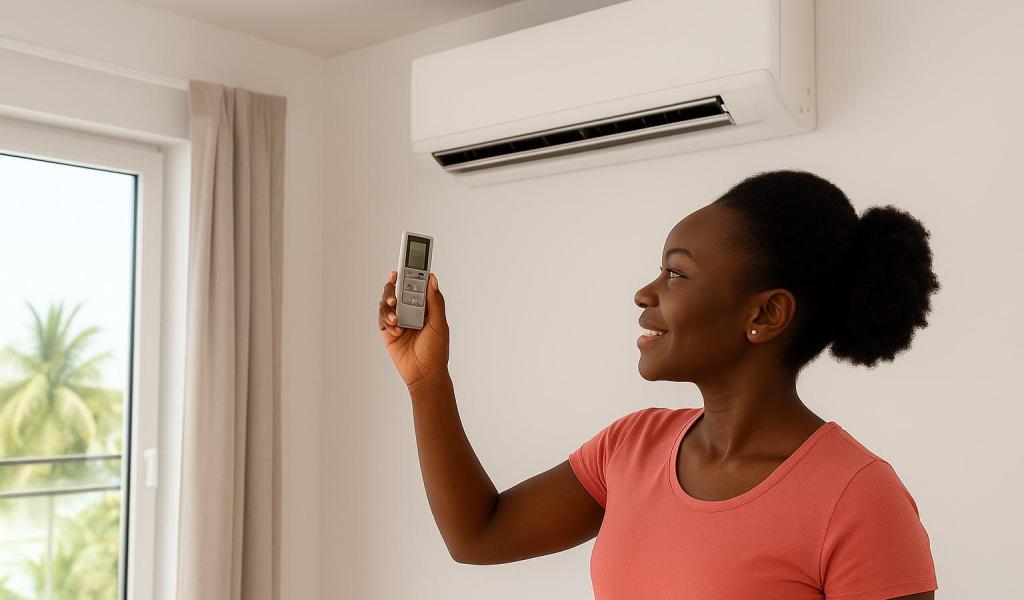News
Mauritius Becomes First SADC Country to Enforce Energy Standards for Room Air Conditioners

Today, Mauritius begins mandatory enforcement of Minimum Energy Performance Standards (MEPS) regulations for cooling equipment. This regulation was officially promulgated in March 2025 by the Government of Mauritius, based on the Harmonized MEPS approved by SADC in 2024 at the regional level (SADC HT110 on Room Air Conditioners), followed by a six-month moratorium period to allow industry stakeholders to prepare and ensure a smooth transition. Mauritius is the first country in the SADC region to enforce these standards.
This energy efficiency measure represents a significant advancement in reducing energy consumption of these devices, promoting environmental sustainability, climate change mitigation, and encouraging the adoption of a new generation of equipment that is better both for the environment and for containing operational energy costs.
The Government of Mauritius expresses satisfaction with the adoption of this new measure, which positions the country on a trajectory toward improved energy security and reduced greenhouse gas emissions. "The enforcement of the SADC Harmonised MEPS marks a pivotal step in Mauritius' journey towards a more energy-efficient and climate-resilient future," said the Ministry of Energy and Public Utilities, Republic of Mauritius.
The development of the SADC Harmonised MEPS resulted from extensive regional consultation and technical collaboration between SACREEE, SADCSTAN, UNEP-U4E, Energy Efficient Lighting and Appliances (EELA) project, UNIDO, and Lawrence Berkeley National Laboratory (LBNL), with funding from the UK Department for Environment, Food & Rural Affairs (Defra) and the Swedish International Development Cooperation Agency (Sida).
Readlay Makaliki, Lead Technical Expert at the SADC Centre for Renewable Energy and Energy Efficiency (SACREEE) and member of the EELA team, highlighted not only the enforcement scope of the regulation but also its impact on market mechanisms. "Through the SADC Renewable Energy and Energy Efficiency Strategy and Action Plan (REEESAP), adopted in 2017, SADC Energy Ministers have directed efforts to phase out inefficient equipment in order to promote sustainable industrialization and strengthen energy security across the region. The initiative by the Government of Mauritius in adopting regionally harmonized cooling MEPS and making them mandatory clearly demonstrates adherence to this directive, while also removing technical barriers to trade within the region," he stated.
“This is a significant milestone for regional collaboration and sustainable development,” stated Patrick Blake, Programme Manager for UNEP United for Efficiency (U4E). “Mauritius has demonstrated its leadership by taking concrete action to promote energy efficiency and reduce climate impact. I congratulate Mauritius for this bold step, as well all partners for their effective collaboration in advancing the SADC Harmonised MEPS aligned with the U4E Model Regulation Guidelines". According to UNEP U4E’s Country Savings Assessment, implementing the standards could save 104 GWh of electricity annually by 2040. This would prevent 101,000 tonnes of CO₂ emissions and result in energy cost savings of about US$15 million.
The regulation applies to self-contained, ductless split room air conditioners and portable units with a cooling capacity of up to 12 kW. It adopts the ISO Cooling Seasonal Performance Factor (CSPF) metric, with a minimum threshold of CSPF 4.5 for self-contained and ductless split systems. For portable air conditioners, a minimum Energy Efficiency Ratio (EER) of 3.10 is required.
"UNIDO warmly congratulates Mauritius for its pioneering leadership in enforcing the SADC Harmonised MEPS for air conditioners," said Mr. Ndivhuho Tshikovhi, Project Associate at UNIDO. He emphasized that this bold and timely action sets a powerful example for the region and reflects the ambition and commitment needed to drive sustainable energy transitions. "Through the Energy Efficiency for Sustainable Livelihoods in Africa (EELA) Programme, UNIDO is proud to support regional efforts across ECOWAS, EAC, and SADC, as well as national EELA windows in Kenya, Zambia, and Zimbabwe," he added. "Mauritius' achievement demonstrates what can be accomplished through strong policies, regional collaboration, and a shared vision for a climate-resilient future", said Mr. Tshikovhi.